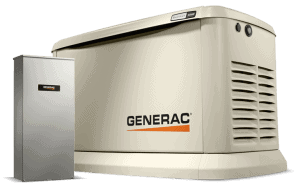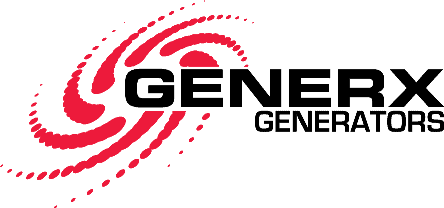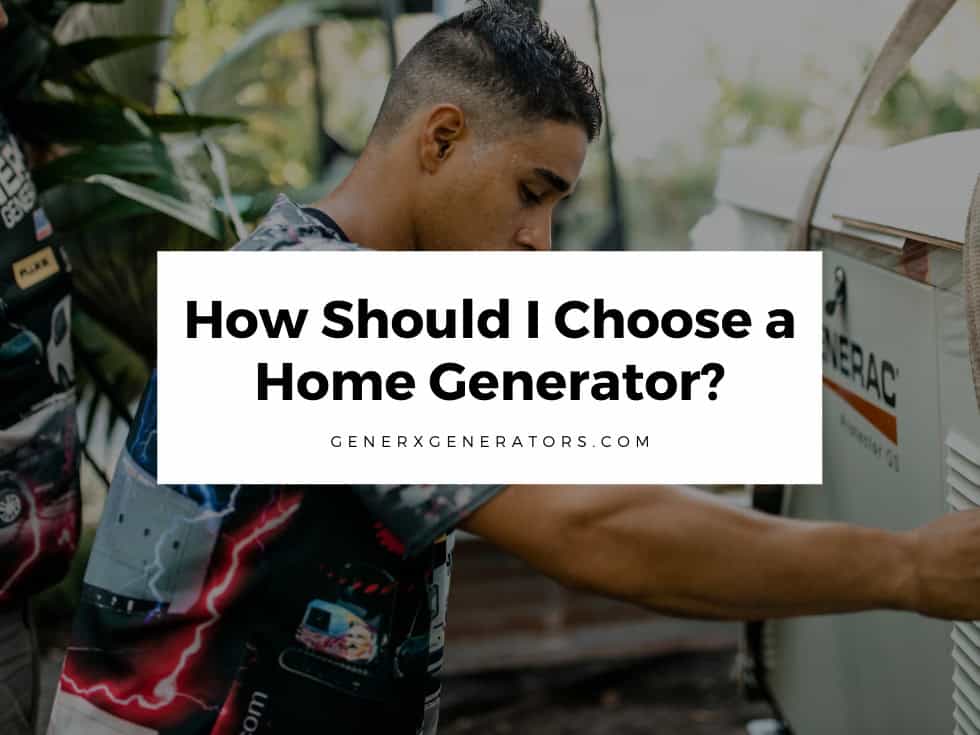Purchasing a home generator should never be a last-minute or thoughtless investment.
People want to be prepared in the event of an emergency power outage, and it’s probably safe to assume that we all want the best our money can buy. We also know trying to figure out what that means can be a bit overwhelming. What IS the best MY money can buy?
Well, that certainly depends on the person asking themselves the question; however there are a few factors to consider that may help you come up with the best answer for you and your family.
How Much Power Do You Need?
If you’re researching generators of any sort, we’re willing to bet the farm that it’s not because you want to be without the necessities in the event that your home loses power.
When choosing a generator, consider how you want or need to operate if your primary power source becomes unavailable. What resources and appliances are absolute essentials? Which ones are nice to have? Which ones, if any, could you do without?
Add up the wattage for all those scenarios (be sure to include an additional 20%, as most appliances have an increase in starting operation or ‘peak’ watts) and decide how long you’d want to operate at those power levels. That number should give you the approximate wattage necessary for the generator you’re considering.
Portable vs Standby Generators
Relatively inexpensive and with no need for a professional installer, portable generators are great for short-term or lower wattage situations. However, they do come with limitations.
Portable generators are manually operated. In the event of a power outage, you will have to pull the generator from storage and manually connect and start the engine to restore energy to your home.
Safety is also an important consideration in choosing a portable generator. The potential for carbon monoxide leaks and poisoning exists.
Standby generators are generally more expensive and require professional installation, which can add another significant cost to the front-end of the investment.

However, standby systems are permanently installed on your property, and automatically kick on when the system senses a power outage. Once installed, there’s no need to do anything to ensure your home is protected from a power loss. Most importantly, carbon monoxide safety is significantly less of an issue, as standby generators run on natural gas or liquid propane fuel; both of which produce much less carbon monoxide than does a diesel or gasoline-fueled portable generator.
Click here for more comparisons of the portable and standby generators.
Personal Budget
We all tend to get a little uncomfortable when it comes to talking dollars and cents. But the truth of the matter is, for most of us, our family budget is a large determining factor in the purchases we make.
When considering a home generator, the very first question is probably going to be “How much can I invest in this purchase?”
If your budget is lean, your best approach will likely be a portable generator instead of a standby permanent generator.
Now, although finances are ultimately the bottom line, the way we consider our finances when investing in the safety and well-being of our homes and lives should factor in just as heavily.
If it’s possible to save for a system that will provide more coverage and protection, it’s worth considering that option.
Quality
It may be tempting to think “a generator is a generator, right?” Wrong! Not all generators have proven to stand up to the test of time.
Discount or bargain brands may be enticing, but remember, in most cases, you get what you pay for.
A quality generator should support your safety and comfort.
Consider reliability, the ability to run consistently and safely, noise levels, and ease of use when thinking about your purchase.
Another critically important factor is the total harmonic distortion (THD) levels. The concept of THD is far too detailed for this post; but essentially, THD levels above the acceptable range have the potential to interfere with the function of sensitive equipment (like computers, laptops, microwaves, etc), in ways that range from reduced power and operations all the way to burning internal components.
Always ask about the THD rating on any generator you’re considering for your home.
If you have any more questions, we’d love to walk you through them. Click here to speak with one of our certified sales reps and receive your free quote.
Always Free Estimates & Proposals
Installation, maintenance, service & repair
Apply for Financing

